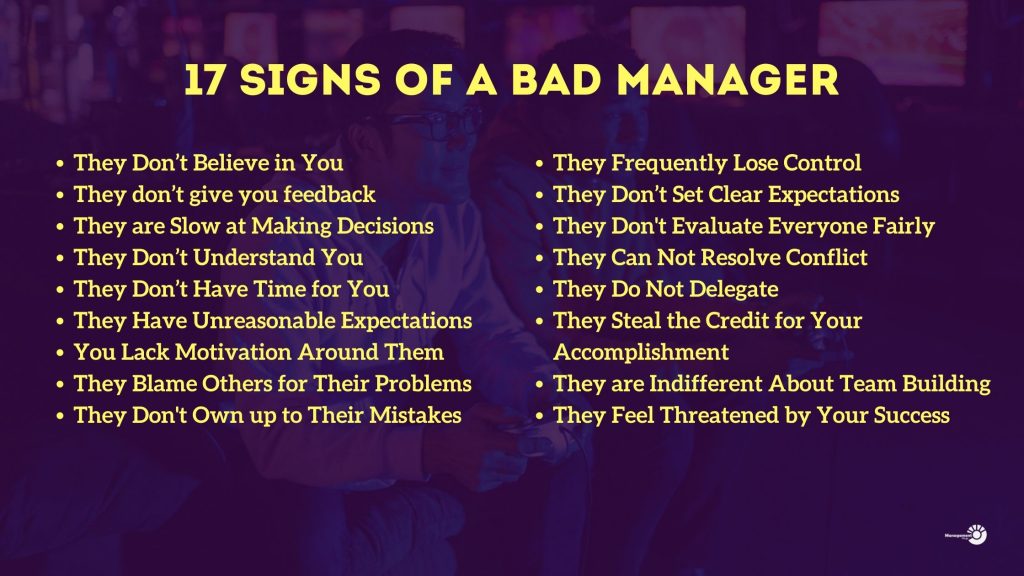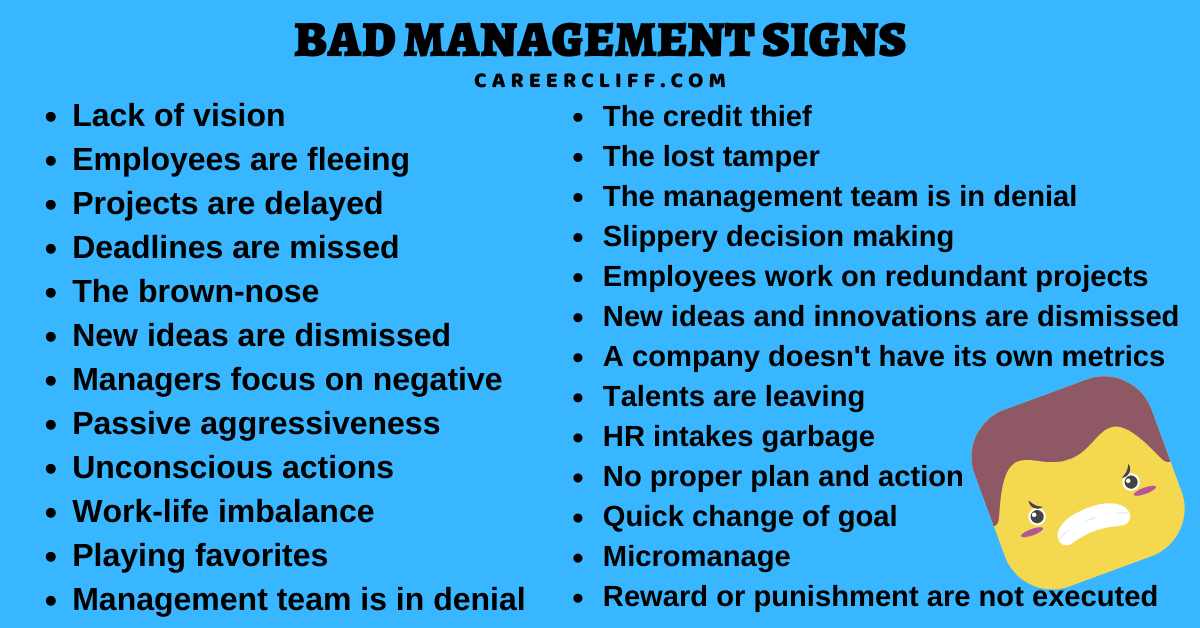How To Deal With A Negative Manager

The constant barrage of criticism, the lack of recognition, the feeling of being perpetually undermined – a negative manager can transform a promising career into a daily struggle. Employees facing such a challenge often report increased stress, decreased productivity, and a significant impact on their overall well-being. Navigating this difficult dynamic requires a strategic approach, focusing on self-preservation and proactive communication.
This article provides practical strategies for dealing with a negative manager, drawing on expert advice and research-backed techniques. It aims to empower employees to mitigate the negative impacts, improve their work environment, and ultimately thrive despite challenging leadership.
Understanding the Landscape
Before taking action, it's crucial to understand the nature of the negativity. Is it a personality trait, a result of external pressures on the manager, or a targeted behavior toward you? Recognizing the root cause can inform your strategy.
Consider seeking feedback from trusted colleagues who have interacted with the manager. Anonymous surveys conducted by HR departments can also provide valuable insights into the manager's overall leadership style. Be cautious not to engage in gossip, but rather gather objective information.
Strategies for Mitigating Negativity
Document Everything
Maintaining a detailed record of negative interactions is paramount. Document specific instances, including dates, times, and descriptions of the behavior. This documentation can be invaluable if you need to escalate the issue to HR or a higher authority.
Focus on factual details and avoid emotional language in your documentation. Keep records organized and accessible, but ensure they are kept secure and confidential.
Focus on Your Performance
One of the best defenses against a negative manager is to consistently deliver high-quality work. Exceed expectations whenever possible and proactively seek feedback on your performance.
Document your achievements and contributions. Prepare a weekly or monthly report highlighting your accomplishments, which you can share with your manager (and keep for your own records). This helps to counteract any attempts to downplay your value.
Set Boundaries
Protect your time and energy by setting clear boundaries. Don't be afraid to say "no" to unreasonable requests or tasks outside your job description. Learn to manage your email effectively and avoid checking it constantly outside of work hours.
Communicate your boundaries assertively but respectfully. For example, "I'm happy to help with that task, but I'm currently focused on [project]. Would you like me to prioritize this instead?"
Seek Support
Dealing with a negative manager can be emotionally draining. Lean on your support network, including friends, family, or a mentor. Talk to someone outside of work to gain perspective and manage stress.
Consider seeking professional counseling or therapy to develop coping mechanisms and build resilience. Remember, taking care of your mental health is crucial.
Communicating with the Negative Manager
Choose Your Battles
Not every instance of negativity requires a direct confrontation. Learn to discern between minor annoyances and significant issues that need to be addressed. Focusing on the most important issues will conserve your energy and increase your chances of success.
Practice choosing moments where communication will be most effective. Consider scheduling a meeting to discuss specific concerns in a private setting.
Focus on Solutions
When addressing concerns with your manager, frame your feedback in terms of solutions. Instead of simply complaining about a problem, offer suggestions for improvement.
Use "I" statements to express your feelings and needs without blaming the manager. For example, "I feel overwhelmed when I receive last-minute requests. Would it be possible to have more advance notice in the future?"
Find Common Ground
Look for opportunities to build rapport with your manager. Identify shared interests or goals and find ways to collaborate effectively. Building a positive relationship, even on a small scale, can help to mitigate negativity.
Even simple gestures like acknowledging their work or contributions can help diffuse tension. Positive reinforcement can work wonders in management styles. This approach aligns with research highlighted in the Harvard Business Review on effective leadership.
Escalation and Alternatives
If direct communication fails to improve the situation, consider escalating the issue to HR or your manager's supervisor. Before doing so, review your documented evidence and ensure you have a clear understanding of the company's policies on workplace harassment and conflict resolution.
Consider all alternative solutions. Sometimes, the best solution is to transfer to a different department or find a new job altogether. Your well-being is paramount, and no job is worth sacrificing your mental health.
Looking Ahead
Dealing with a negative manager is a challenging but not insurmountable obstacle. By employing these strategies, you can minimize the negative impact on your work life and career. Remember to prioritize your well-being, advocate for yourself, and seek support when needed.
Ultimately, the experience of dealing with a difficult boss can be a valuable learning opportunity. It can help you develop resilience, communication skills, and a deeper understanding of your own values and career goals. Learn all you can, and find the strength to move towards a fulfilling career.




.jpeg)













